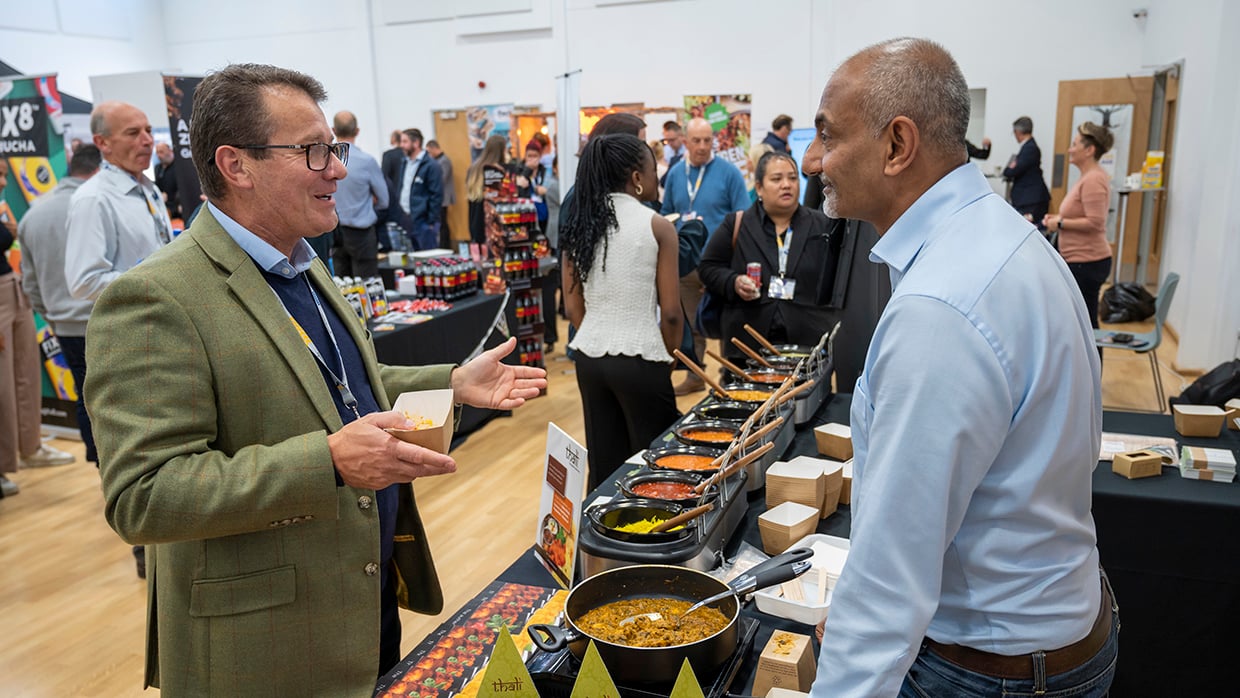
Innovation through partnership and collaboration
Authored by Mark Baker & Tom Laskey
Food Connections showcase
Earlier this month, we launched our inaugural Food Connections showcase. The programme, delivered over two days, saw over 200 colleagues, clients and suppliers gather together to gain insight into our partnerships and how we are collaborating on key areas like menu development, digital innovation, sustainability and supporting the wider Armed Forces and Veteran communities.
To us, the event was the perfect opportunity to summarise what we must try to achieve more of – creating a culture where innovation can flourish through partnership. And where collaboration is the driving force behind a new approach to delivering an enhanced lived experience on base.
The move towards collaborative strategies is nothing new of course, but its reinforcement in the Government Industrial Strategy 2025 makes it more crucial than ever. Often driven by globalisation and rapidly advancing technology it seeks to prioritise customers’ needs in key business decisions. Some of the world’s best-known businesses have been long-standing advocates for collaboration over competition and the message is becoming clearer – there is strength in numbers rather than in isolation.
The Armed Forces’ present challenges with recruitment and retention are well documented. As service providers, we need to futureproof and adapt so that the reality of life on base reflects the expectations of the next generation of recruits and those who may be considering leaving the service prematurely.
Change in these complex operating environments will require creative thinking. Service providers will need to be open to a level of direct collaboration, that has, historically not played a major part in the delivery of specifications. Collaboration between traditional competitors is happening in certain areas, but it will need to markedly improve to unlock the level of change needed to meet the future expectations of military personnel.
The good news is that across the defence sector, service providers are typically in long-term contracts. There is little need to compete for clients in the short-term, and therefore the barriers to increased collaboration are lower and should be easier to achieve.

It’s not just with other large providers to the military where this level of collaboration will be essential. As a large global player, we have like others become increasingly mindful of the power of partnership with smaller operators and third-sector organisations. We should continue to nurture these relationships to ensure a diverse supply chain. We made it part of our Social Impact Pledge in the UK and Ireland, committing to ensuring that a minimum of 40% of our spend would be with SMEs and VCSEs.
Smaller businesses are often uniquely placed to drive not only greater levels of flexibility but innovation at pace – their size and often niche focus fuels this drive. We have seen this close-up at our Food Connections showcase, in our collaboration with EatCurious, a SME offering low-carbon meat-free alternatives, or with veteran-owned social enterprise, Combat2Coffee.
SMEs and VCSEs can in turn benefit from our infrastructure, knowledge and resources. We have for some time run a supplier mentoring programme specifically designed for smaller organisations. Any such supplier can approach us with a need for advice and guidance on any aspect of business – from social value work to strategy and policy, even social media. We take the time to pair them with an internal expert on that subject. Through collaboration we’re trying hard to help our suppliers upskill and increase their capacity and capabilities. It benefits all parties.
Business leaders often gather around meeting room tables to brainstorm ways to outshine and outpace the competition and chase the all too often elusive competitive edge. Yet the landscape is changing, and businesses are rightly rethinking what it takes to create a competitive advantage. What matters most is our clients and the end users of our services, by pooling ideas and resources we will feed innovation, reduce costs and ultimately deliver a more targeted, interconnected service for our customers on base.

You may also be interested in...
Sodexo services for Government agencies
Sodexo's social impact commitments